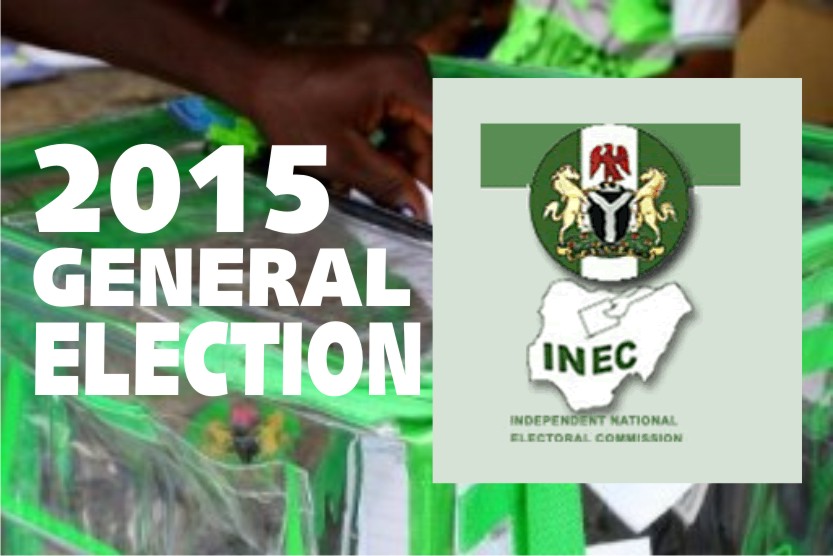
May 14, 2015
/
By:
ofcounsel_admin/
- 0 Comments
/
- Law News
What is your view on refusal of President Goodluck Jonathan to ascent to the fourth alterations of the 1999 constitution passed by the National Assembly?
I will not arrive at any judgment. However, if the president doesn’t agree with the lawmakers and they are threatening to exercise their rights, I think in Section 58 (5) they are allowed to re-pass the bill, it won’t need president’s ascent any more. The president is saying they have not done certain things, what the president should do is to go to court, which he has done. What I want to say is that court should be a last resort because since the president is leaving soon, there are many provisions in the bill that are very good.
I am sure the president is not against many of them. Then, I think it will go down well in history if he is able to work with the National Assembly and pass those he has no objection to. What I understand from his objection, though I may be wrong, was that he is saying there are some amendments there which have not gone through due process and I take that to be Section 9 which deals with issue of the amendment. If you want to amend, like they want to do, then you need four/fifth majority of both houses apart from two third majority of the state Houses of Assembly. I think the President is right to point out that they have not shown that the bills passed through four/fifth majority as required. They should have a stakeholders meeting where members of the executive meet with the representatives of the Lawmakers and sort it out. If they are going to re-pass it let them do that, even if they do, they will still have to send it round again. I will suggest that they can take out those that are Ok and pass it to law, while leaving the other proposals for the next administration. Though, there is nothing wrong to approach the Supreme Court, if there is dispute between two arms of government even though the Supreme Court has a lot of things to deal with.
So, if those alterations go with the present administration without passing it to law, do you agree that the new lawmakers should start all over again?
The National Assembly has their own rules, they can pass motion and adopt the bills as it is and continue from where ever the outgoing session ended their work. In whatever way, that should not be a problem for them.
What areas of the electoral process do you think should be improved on?
In my view, our electoral process is maturing from what I saw in the last election. I think we have taken a giant lead basically because of the card readers introduced into the process. But there is still a lot to be done. Like we saw on Television during the poll, children less than 10 years were accredited in some areas. A lot has been said but with the help of the government, INEC now needs to improve on it. Even though we have the card readers to curb rigging and in as much as it reduced rigging to some extent, we still need that human content for it to work perfectly. With the card readers, we still realized that it is not fully protected against rigging. The body still needs some works to be done. In my own area, that is the GRA, we have some problems. In my polling unit they didn’t come for the exercise until 11..am during the presidential election. Then, when they started the accreditation with the card reader around 12 pm, we were able to conclude by 2pm. But when we now finished accreditation, and it is the time for us to vote, the officials said they didn’t come with the ballot papers, which eventually came about 8pm.
Later, it was around evening the voting started and the last person voted at about 2 am. What was amazing was that voters waited till the night for them to count and announce the result. That is to show you the determination of the people to cast their votes. The result should be electronically transmitted online, so that if some people snatch ballot box, they are just wasting their time. The incoming administration, the personnel, the leadership of the country and the electoral body should make sure that things work perfectly.
Jega’s time is over now but the person to replace him should be a good person with integrity and they should allow him to work independently.
The political class has to build the structure and strengthen the institution. They have to get people who are bold and cannot be bought over. People who will understand the delicate nature of the position they are occupying and the importance of it. Those who will not terminate our democracy by understanding the importance of the office.
Secondly, the political class too has a role to play. Some people are good by their own nature, but by the time they see somebody doing something bad, they will also join. That is, when they realize that other politicians are planning to rig him out, they will also change. So what we need to do is to build the institution. We have to strengthen the institution of democracy.
Finally, the complaints about the elections can be taken to the election tribunals. When the law abridged the period to file and hear election petitions to 180 days, we hailed it. However, I happened to sit on some election petitions we could not finish within the stipulated days.
In this type of situation it is always difficult to achieve that time limit. For instance, what the winner needs to do to elongate the time is to challenge or object to the jurisdiction of the Tribunal. The moment the tribunal assumes jurisdiction, what the winner needs to do again is to appeal the ruling. By the time the appeal is concluded and you return to the tribunal, 180 days are already gone.
Now the next phase of the electoral process is the election petition. Some aggrieved politicians have filed their petitions. Do you think the 180 days are enough for the tribunals to dispense with the cases?
It is unfortunate that we have so much challenges, but I think this time the problems will be reduced. In my opinion, the first amendment to constitution is to reexamine the time which Tribunals could hear election petitions. The 180 days is alright but there are still much to be done. The laws have to be amended so that those 180 days would mean for the period to file and hear the cases. Even though you can raise objections about jurisdiction, but election matters are special procedures which do not necessarily mean that you have to go through all the normal legal process. They should amend the law to mean that all interlocutory matters must be heard with the substantive matters. So after this, the appeal tribunal can hear the appeals arising from the lower tribunals within shortest time. That is the way somebody who lost an election can be given justice.
How do you think the incoming administration can tackle corruption?
Corruption is endemic in Nigeria. The elders say serious problems require serious solutions. The first thing to solve the problem is to resolve the issue of leadership. From my experience as a Nigerian we could see that if we have a very strong and charismatic leader who could lead by example, things will fall in line. Flash your mind back to Gen Murtala Mohammed’s regime, during that short time; it was as if Nigeria was panel beaten to do the right thing. This was also with the military regime of Buhari and Idiagbon, everybody adjusted to necessary things.
Fortunately, we have a constitution which empowers the President so much, even more than the US. So if the President leads by example, much progress can be achieved. Imagine a minister was accused of buying bullet proof cars with so much inflated rates and nothing was done. I like President Jonathan as a person but I was disappointed with some of his attitudes about his leadership styles. I felt that if I was a President and my minister is being accused, I am not the one that will decide it, is not my duty. The first thing is for the minister to go and answer to a committee set up or send the minister to where they will investigate and tell her to step aside. Do the investigation for a week or two and come out with a report. If the report absolves her then, and if the report say she have some questions to answer then you remove the minister and let her go and face the music. I think that is the kind of leaders we need.
Another thing is to restructure the institution. We have investigative bodies like the police, EFCC, ICPC; all of them need to be strengthened. If the president-elect re-launches the War against indiscipline and gives it another name, there is nothing wrong in that.
The Judiciary is another area we need to focus on. We cannot deny that there is corruption in the judiciary even in Lagos State where judges are being taken care of. This institution needs to be strengthened and ensure that it performs to the highest level. And our Freedom of Information Law is not well implemented. So things like this should be sorted out for people to have free access to information. And you Journalists should engage more in investigative journalism. I give the forth estate pass mark especially, from the time of Abacha, I know what it went through. But they should do more.
Also talking about the punishment of corruption, you have problem with the judiciary. Because when people are in a position of trust with public funds, they come back and flaunt it, even if they are tried, nothing will eventually happen. That also encourages people coming up to go int the crime. There was a time journalist interview some children who are coming out of school, and it was 80 percent of them that wanted to join immigration and police. It has become a norm in the society that these are the areas you can earn good. Our systems to punish corrupt offenders are weak.
Click here to read from source.

